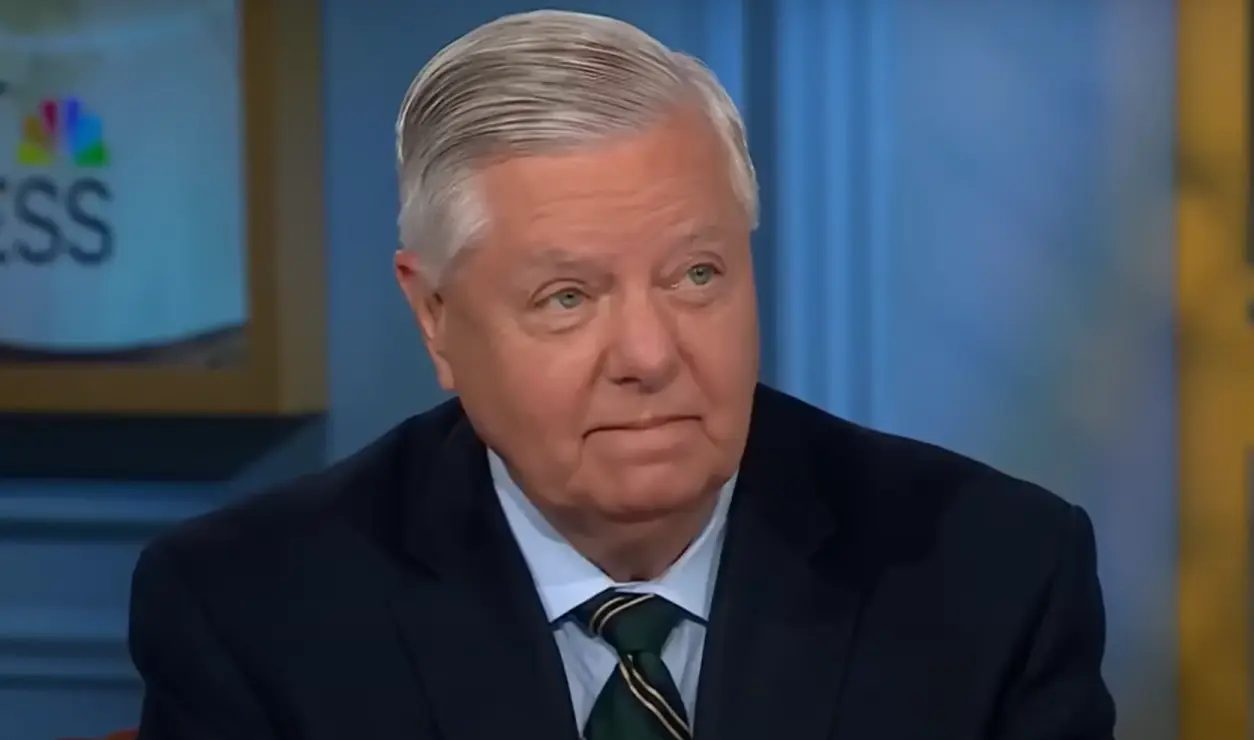
Senator Lindsey Graham warns Europe over oil imports from India sourced from Russia (photo-videograb)
In a striking escalation of rhetoric surrounding global energy trade and geopolitical alliances, U.S. Senator Lindsey Graham has issued a stern warning to European nations purchasing oil from India – oil that India originally sourced from Russia. The warning, delivered via social media and reinforced in interviews, signals a growing tension between the United States and its allies over indirect support for Russia amid its ongoing war in Ukraine.
Lindsey Graham Warning: “We Are Watching”
Senator Graham’s message was unambiguous. Addressing European countries that have been aiding Ukraine militarily and diplomatically, he expressed concern over their continued energy dealings with India. The crux of the issue lies in India’s purchase of discounted Russian crude oil, which it refines and sells globally, including to Europe.
“To my European friends who have been helping Ukraine, it is much appreciated. However, it is not lost upon me or others that you are buying oil from India – that India originally purchased from Russia,” Graham posted on X (formerly Twitter). “We are watching. This needs to stop now”.
This statement underscores a broader U.S. strategy to isolate Russia economically and punish nations that, directly or indirectly, fund its war efforts.
The Tariff Strategy: Trump’s Economic Hammer
Graham’s warning comes on the heels of former President Donald Trump’s executive order imposing a 50% tariff on Indian goods entering the U.S., citing India’s continued purchase of Russian oil. Graham praised the move, calling it a “gamechanger” and a “defining moment in the war.”
“President Trump has put the world on notice that if you continue to buy Putin’s oil, you are no longer going to be allowed to have access to the American economy without substantial tariffs,” Graham said.
He further hinted at the possibility of even harsher economic measures, including a 100% tariff, should India persist in its energy relationship with Russia.
Global Implications: Europe in the Crosshairs
While India, China, and Brazil have been the primary importers of Russian crude – accounting for nearly 80% of its exports- Graham’s latest remarks shift the focus to Europe. The senator’s concern is that European nations, while publicly condemning Russia and supporting Ukraine, are indirectly funding Russia’s war machine by purchasing refined oil from India.
This duality, Graham argues, undermines the collective effort to pressure Moscow into ending its aggression.
“Buying cheap Russian oil is not going to be as easy as it used to be,” he warned, adding that countries engaging in such conduct “have no one to blame but themselves”.
India’s Position: Energy Security First
India has consistently defended its oil imports from Russia as a matter of national interest. With a growing economy and rising energy demands, Indian officials have emphasized the need to secure affordable energy sources, especially amid global volatility.
Despite mounting pressure from the West, India has maintained that its purchases are legal and transparent, and that it is not violating any international sanctions.
In response to threats of tariffs and economic retaliation, Indian officials have reiterated their commitment to energy security, even if it means facing higher import costs or strained diplomatic ties.
Graham’s Broader Message: “Blood Money”
Senator Graham has not minced words in characterizing the purchase of Russian oil. He equated it to “blood money,” accusing nations of enabling Russia’s war crimes by funding its economy through energy trade.
“You’re buying cheap Russian oil at the expense of the world, and President Trump is tired of this game,” Graham said in a Fox News interview.
He warned that continued purchases would result in severe economic consequences, including crushing tariffs and restricted access to the U.S. market.
A Defining Moment in U.S. Foreign Policy?
Graham’s remarks reflect a broader shift in U.S. foreign policy under Trump’s leadership – one that favours aggressive economic measures over diplomatic persuasion. By targeting not just Russia but its trading partners, the U.S. aims to create a ripple effect that isolates Moscow and forces a recalibration of global energy alliances.
This approach, however, risks alienating key allies and complicating international relations. European nations, already grappling with energy shortages and inflation, may find themselves caught between moral imperatives and economic necessities.
What Comes Next?
The coming weeks will be critical in determining how this geopolitical drama unfolds. Key questions remain:
- Will European nations heed Graham’s warning and reduce oil imports from India?
- How will India respond to escalating tariffs and diplomatic pressure?
- Could this lead to a broader trade war involving multiple nations?
- Will other U.S. lawmakers support Graham’s hardline stance?
As the war in Ukraine continues and global energy markets remain volatile, the intersection of morality, economics, and diplomacy will shape the next chapter of international relations.
Strategic Autonomy or Defiance? India’s Bold Response to US Pressure Over Russian Oil